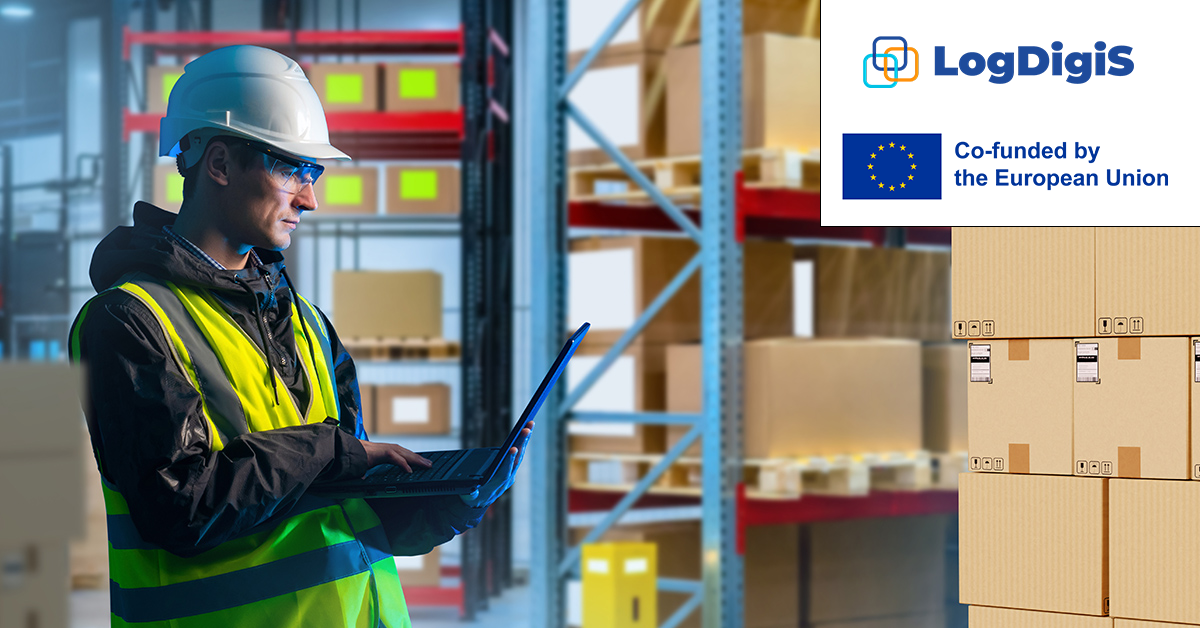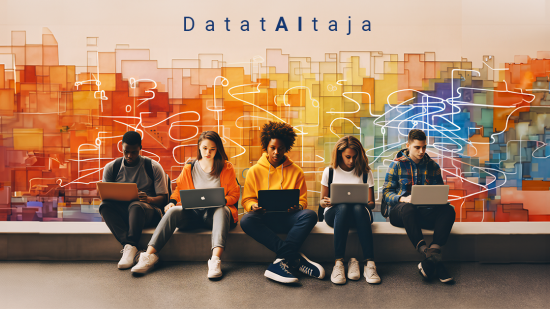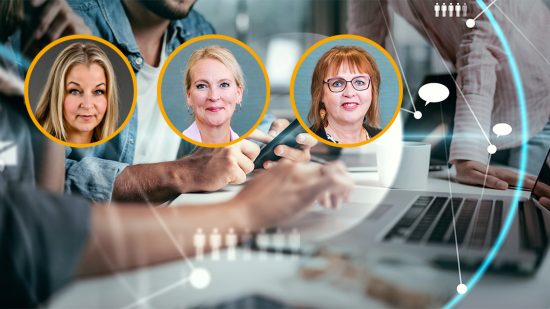In a changing and digitalising working life, versatile digital skills and competences related to the use of digital tools are needed. In the LogDigiS project, we are promoting digital skills in SMEs in the in-house logistics* sector, and thereby improving well-being, productivity, and profitability.
“In-house logistics is part of a very wide range of jobs and businesses, as the practical work includes receiving goods, shelving, moving materials, picking, packing and loading, among other things. The work often takes place in warehouses, which are found in shops, factories, and hospitals. So the project has a real impact on the skills of Finnish businesses on a wide scale,” says Jaana Lerssi-Uskelin, Project Manager at LAB University of Applied Sciences.
The in-house logistics SMEs participating in the project will benefit from the development of digital skills in a number of ways. As a result of the development of skills, digital tools are perceived as facilitating work, which contributes to well-being at work. Supervisors are better equipped to lead the implementation of digital solutions, which in turn plays a significant role in the success of the implementation. Companies are learning to recognise the added value of digitalisation in developing their business, and a positive attitude will improve well-being and productivity throughout the workplace. They will also learn how to take responsibility and sustainability principles into account when adopting and acquiring technologies.
From baseline surveys to company-specific roadmaps
“The key to the project is the company-specific development plan. Together with the companies’ staff, we take a holistic look at the starting situation in terms of well-being at work and digital capability, and set targets based on the bottlenecks identified. We also support the implementation of the tools and monitor the digital development of companies throughout the project,” says Jari Salo, project coordinator at TIEKE.
In addition, enterprises will be able to learn from each other and receive peer support through regional meetings involving all the enterprises involved in the project in the region concerned. DHL Supply Chain (Finland) Oy and its units in the Helsinki and Oulu regions will be the major benchmarking company for the project.
A digital skills kit for common use
The project will produce a practical, digital skills package for companies to use in order to promote digital capability. The kit includes webinar recordings, materials on digitalisation induction, digital tool adoption and skills development for supervisors and personnel, as well as tools used in the project to develop digitalisation. The digital competence kit will be freely available to other companies, stakeholders, educational institutions, and other interested parties.
Join the project?
Interested? Contact Project Manager Jaana Lerssi-Uskelin, jaana.lerssi-uskelin@lab.fi!
* By in-house logistics workplaces, we mean workplaces in different sectors, such as retail and industry, where there are in-house logistics processes (e.g. receiving, shelving, material handling, picking) and warehousing.
LogDigiS – Building Digital Competences, Work Well-being, and Productivity for In-house Logistic SMEs
The LogDigiS project promotes digital skills, work well-being, and productivity in small businesses in in-house logistics nationwide.
The project is coordinated by LAB University of Applied Sciences and the project partner is TIEKE Finnish Information Society Development Centre.
Project duration:
1.1.2024-31.12.2025
Funding:
The project is co-funded by the European Union.
More information:
- LAB University of Applied Sciences: Jaana Lerssi-Uskelin, jaana.lerssi-uskelin@lab.fi
- TIEKE: Jari Salo, jari.salo@tieke.fi
- www.logdigis.fi (page in Finnish)

Collaborate with TIEKE?
Want to help organizations in themes such as digital competence, data economy, real-time economy, or sustainability? Partner with us!
TIEKE Finnish Information Society Development Centre is a non-profit organisation founded in 1981 aiming to develop, improve and support a thriving information society and all its digital endeavours.
We help organizations in various ways:
- Projects and initiatives
- Networking and ecosystem work
- Surveys and studies
- Expert services and advice
- Webinars, online trainings and coaching programmes
- Materials and guides
We have a track record working in various project roles: coordination, partner, expert, comms and more.
We run around 15 projects per year and are familiar with instruments such as CERV, Erasmus, ERDF and ESF.
We work with wide array of target groups such as SMEs, large companies, educational organizations, public sector and associations.
Don’t hesitate to get in touch to discuss collaboration opportunities with us!










